
Henry Steele Commager (1902–1998) was an American historian. As one of the most active and prolific liberal intellectuals of his time, with 40 books and 700 essays and reviews, he helped define modern liberalism in the United States.
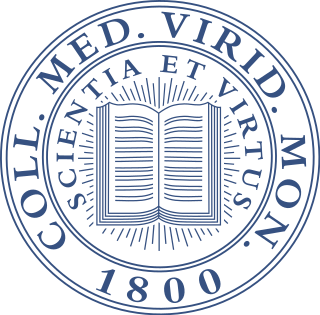
Middlebury College is a private liberal arts college in Middlebury, Vermont. Founded in 1800 by Congregationalists, Middlebury was the first operating college or university in Vermont. The college currently enrolls 2,773 undergraduates from all 50 states and 74 countries and offers 45 majors in the arts and humanities as well as joint engineering programs. In addition to its undergraduate liberal arts program, the school also has graduate schools, the Middlebury College Language Schools, the Bread Loaf School of English, and the Middlebury Institute of International Studies at Monterey, as well as its C.V. Starr-Middlebury Schools Abroad international programs. It is among the Little Ivies, an unofficial group of academically selective liberal arts colleges, mostly in the northeastern United States.
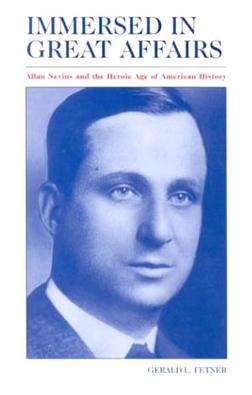
Joseph Allan Nevins was an American historian and journalist, known for his extensive work on the history of the Civil War and his biographies of such figures as Grover Cleveland, Hamilton Fish, Henry Ford, and John D. Rockefeller, as well as his public service. He was a leading exponent of business history and oral history.
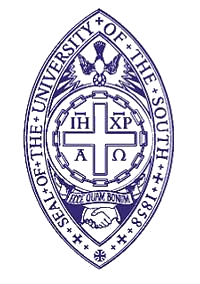
The University of the South, familiarly known as Sewanee, is a private Episcopal liberal arts college in Sewanee, Tennessee. It is owned by 28 southern dioceses of the Episcopal Church, and its School of Theology is an official seminary of the church. The university's School of Letters offers graduate degrees in American Literature and Creative Writing. The campus consists of 13,000 acres (53 km2) of scenic mountain property atop the Cumberland Plateau, with the developed portion occupying about 1,000 acres (4.0 km2).

The National Minimum Drinking Age Act of 1984 was passed by the United States Congress and was later signed into law by President Ronald Reagan on July 17, 1984. The act would punish any state that allowed persons under 21 years to purchase alcoholic beverages by reducing its annual federal highway apportionment by 10 percent. The law was later amended, lowering the penalty to 8 percent from fiscal year 2012 and beyond.
A chancellor is a leader of a college or university, usually either the executive or ceremonial head of the university or of a university campus within a university system.
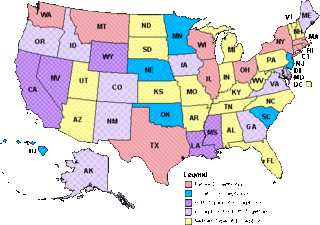
Alcohol consumption by youth in the United States of America, also known as underage drinking, is an umbrella term for alcohol consumption by individuals under the age of 18 in the country.

Jon Ellis Meacham is an American writer, reviewer, historian and presidential biographer who is serving as the Canon Historian of the Washington National Cathedral since November 7, 2021. A former executive editor and executive vice president at Random House, he is a contributing writer to The New York Times Book Review, a contributing editor to Time magazine, and a former editor-in-chief of Newsweek. He is the author of several books. He won the 2009 Pulitzer Prize for Biography or Autobiography for American Lion: Andrew Jackson in the White House. He holds the Carolyn T. and Robert M. Rogers Endowed Chair in American Presidency at Vanderbilt University.
Choose Responsibility is a non-profit organization in the United States, that promotes public awareness of the dangers of excessive and reckless alcohol consumption by young adults. The main goal is to lower the minimum legal drinking age by educating the public. It was founded and is directed by Dr. John McCardell, Jr., president emeritus of Middlebury College.

Charles R. Middleton served as the President of Roosevelt University from 2002 to 2015 when he retired.
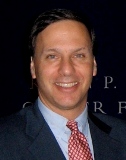
Ronald D. Liebowitz is the ninth President of Brandeis University succeeding Frederick M. Lawrence. Formerly Middlebury College's 16th President, and a professor of geography, succeeding John McCardell, Jr. on July 1, 2004. On December 17, 2015, it was announced that Liebowitz would become the ninth president of Brandeis University.

The youth rights movement seeks to grant the rights to young people that are traditionally reserved for adults, due to having reached a specific age or sufficient maturity. This is closely akin to the notion of evolving capacities within the children's rights movement, but the youth rights movement differs from the children's rights movement in that the latter places emphasis on the welfare and protection of children through the actions and decisions of adults, while the youth rights movement seeks to grant youth the liberty to make their own decisions autonomously in the ways adults are permitted to, or to lower the legal minimum ages at which such rights are acquired, such as the age of majority and the voting age.
The Amethyst Initiative is an organization made up of U.S. college presidents and chancellors that, in July 2008, launched a movement calling for the reconsideration of U.S. legal drinking age, particularly the minimum age of 21.
William Wilhartz Freehling is an American historian, and Singletary Professor of the Humanities Emeritus at the University of Kentucky.
Samuel Ruthven Williamson Jr. is an American historian. He was President and Vice-Chancellor of The University of the South (Sewanee),. He is the author of numerous books including Austria-Hungary and the Origins of the First World War (1991).
Youth in the United States can be regarded as one age group in the demographics of the United States. In 2010 it was estimated that 20.2% of the population of the United States were 0–14 years old.

Smog is a public artwork by American artist Tony Smith located to the south east of McCardell Bicentennial Hall on the Middlebury College campus, in Middlebury, Vermont. An example of minimalist sculpture, the piece is a lattice of 45 octahedra, standing on 22 tetrahedra, and topped with 15 prisms. It is fabricated from aluminum, painted black. This work is first in an edition of three, with one artist's proof.
The Society of American Historians, founded in 1939, encourages and honors literary distinction in the writing of history and biography about American topics. The approximately 300 members include professional historians, independent scholars, journalists, film and documentary makers, novelists, poets, and biographers, all of whom were selected for membership based on the literary excellence as well as the intellectual strength of their writing or presentation of American history.











